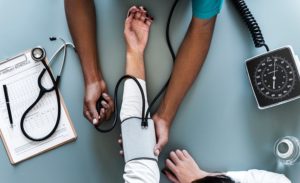
According to the National Vital Statistics System of the US Centers for Disease Control and Prevention, more than 130 people die each day from an opioid overdose in the US. Combined with the rising number of people who battle physical and emotional pain, addiction, substance use, etc. it is a public health challenge of epic proportion. Besides the individual challenges to the patients and providers, the opioid epidemic is impacting the overall health and economic systems. A 2016 article in the journal Medical Care looked at the economic burden of the opioid epidemic in the US, finding it to be an estimated “$78.5 billion a year, including the costs of healthcare, lost productivity, addiction treatment, and criminal justice involvement.”
Ensuring that patients have access to doctors and other health care personnel who are specially trained in pain management and addiction medicine, can likely help improve outcomes and the bottom line. A 2018 article in the New York Times reported on the lack of education and training in medical schools on addiction management with “only about 15 of 180 American programs teaching addiction as including alcohol, tobacco and other drugs.” Prior to 2015, the American Board of Medical Specialties did not even recognize addiction medicine as a practice area.
Yet, the tide seems to be turning. In March, NPR ran a story on the increase in fellowship programs offering physicians “a year or two of postgraduate training in clinics and hospitals where they learn evidence-based approaches for treating addiction.” The story shares that there are now 60 of these programs available, and that a growing number of doctors-to-be are looking to make addiction medicine their specialty.
The American Board of Preventive Medicine (ABPM) defines addiction medicine as the “prevention, evaluation, diagnosis, treatment, and recovery of persons with the disease of addiction, of those with substance-related health conditions, and of people who show unhealthy use of substances…” It is the hope that through the availability of more training programs for doctors, we can close the gap in patient care for opioid and other addiction diseases, and prevent new cases.
CSIP and partners will continue to work tirelessly to build and maintain mechanisms to protect consumers from harmful medication purchase and use, and to connect them with treatment resources and support. MedicineSafe, a collaboration with the Partnership for Drug-Free Kids, is a great resource for state and local governments and partners to share resources on this topic.
###
About the Center for Safe Internet Pharmacies (CSIP)
The Center for Safe Internet Pharmacies (CSIP), a non-profit organization founded in 2011 by the White House, represents the technology sector and commerce intermediaries including Google, Microsoft, Facebook, Oath, UPS, PayPal, MasterCard, Discover, American Express, and .Health. CSIP’s mission is to promote industry best practices as it relates to illegal online pharmacies, and educating consumers about safe purchasing of prescription drugs.

